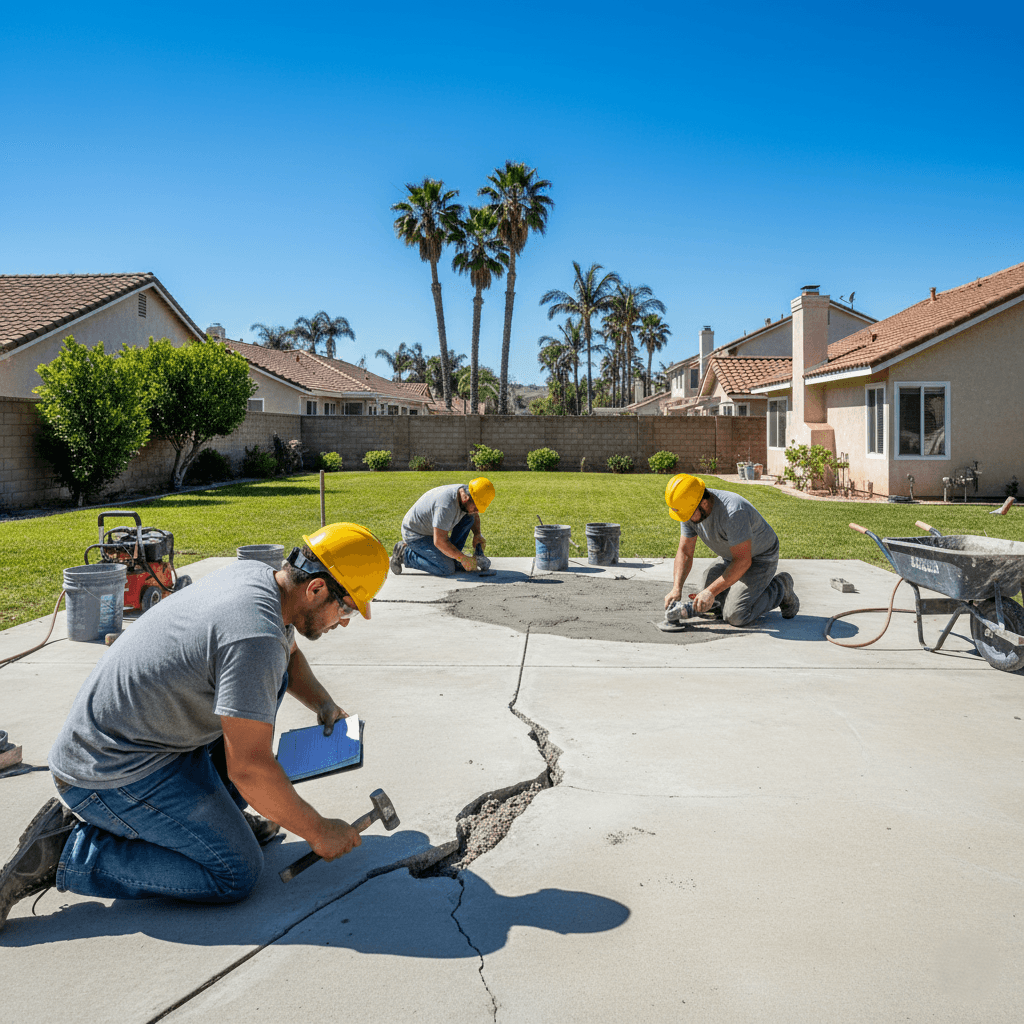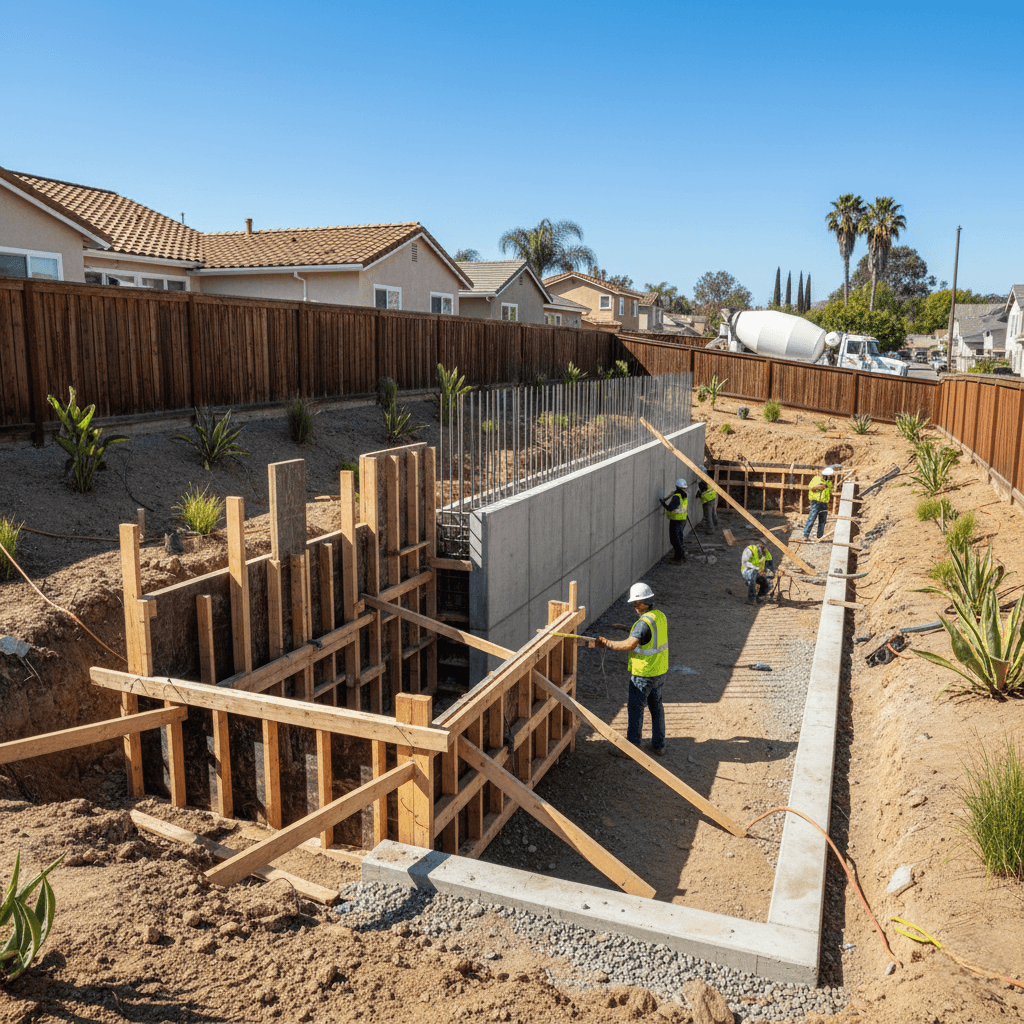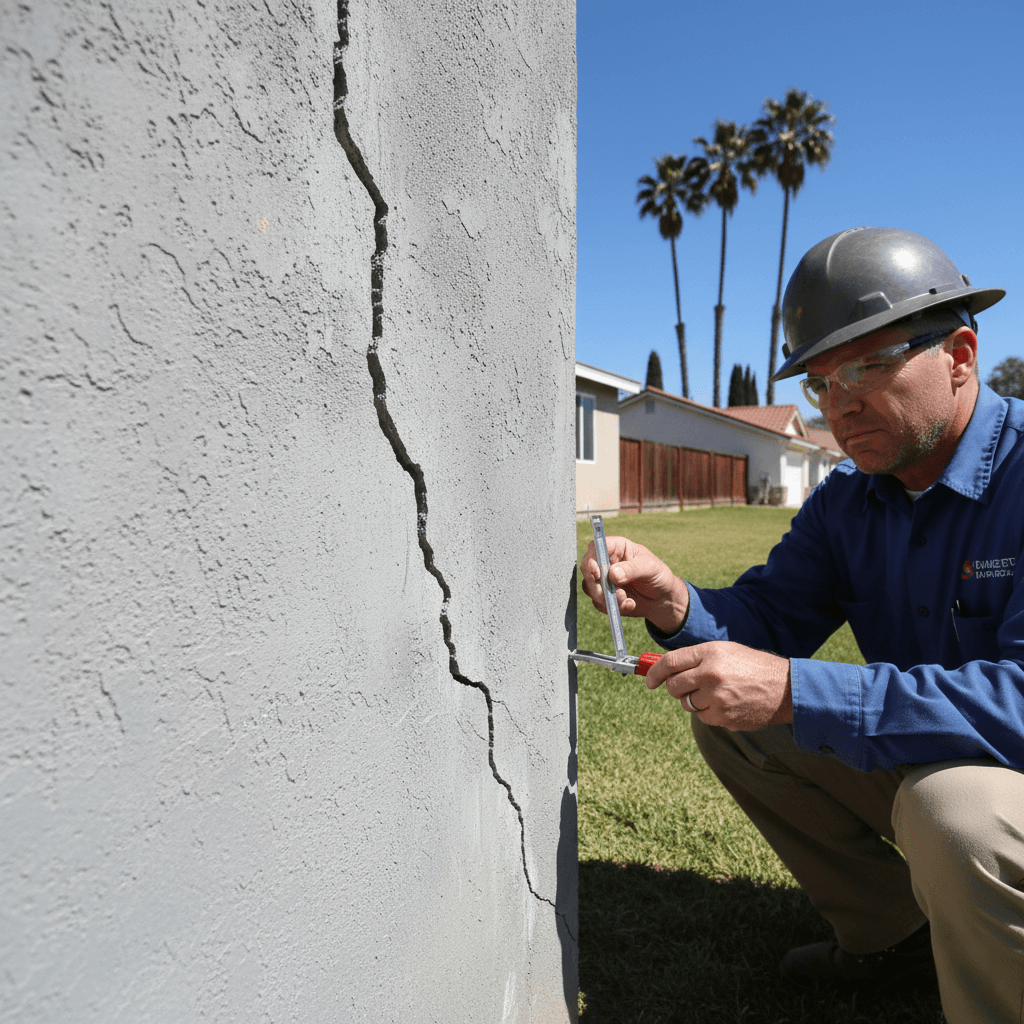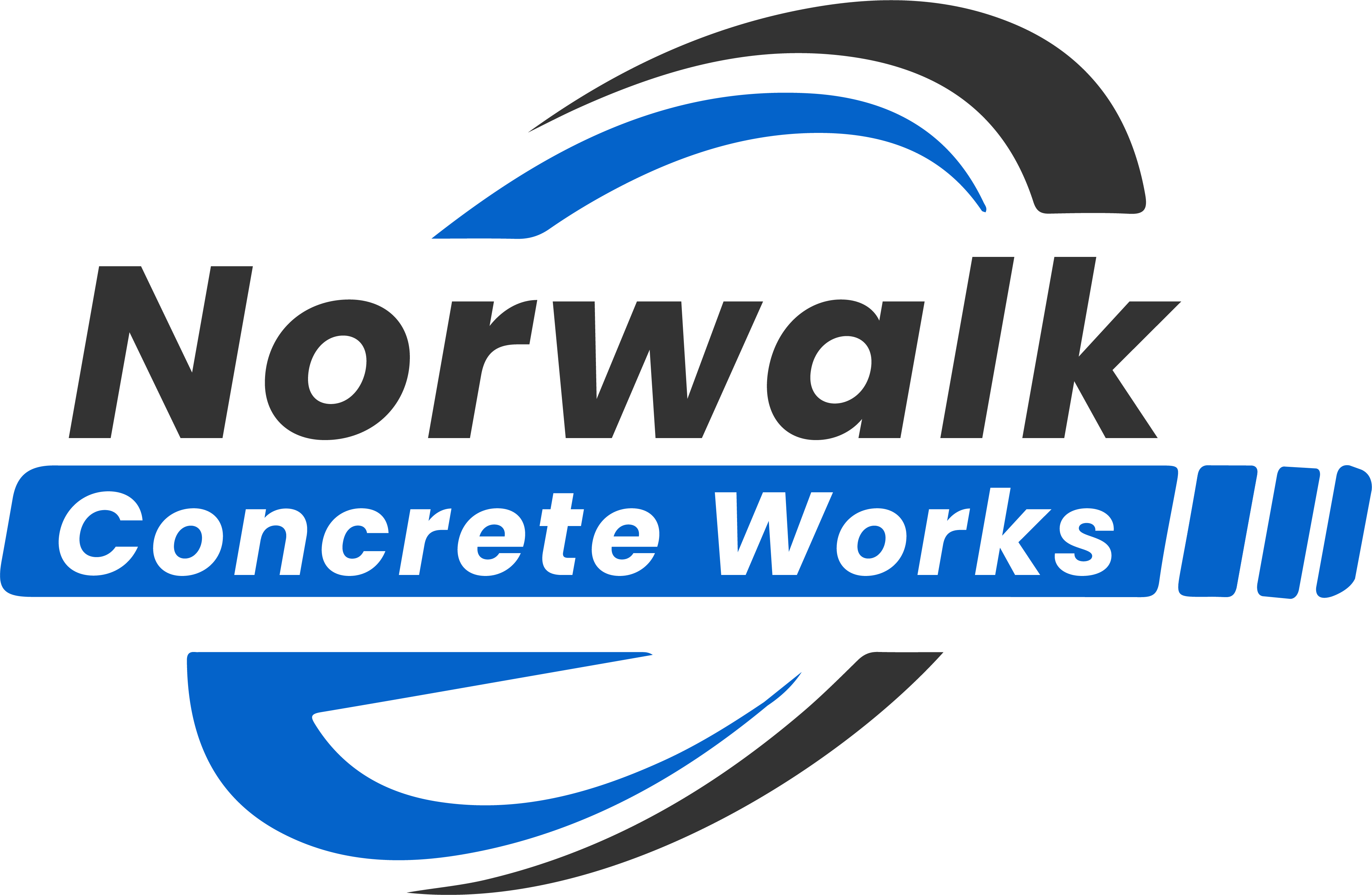Norwalk Concrete Works - Frequently Asked Questions
If Your Question Is Not Answered Here Drop Us A Line
How much does it typically cost per square foot for professional concrete driveway installation in Norwalk?
In Norwalk, California, concrete driveway installations typically range from $8 to $16 per square foot for professional installation services. Standard 4-inch reinforced driveways cost $8 to $12 per square foot, while premium 6-inch installations with decorative finishes reach $14 to $16 per square foot. California’s stringent building codes and seismic requirements can increase material and installation costs compared to other states. The competitive Los Angeles County market helps moderate pricing, though prevailing wage requirements for larger projects and environmental regulations may add to the overall expense.
How do replacement costs compare to driveway resurfacing in Norwalk?
Complete driveway replacement in Norwalk costs $10 to $18 per square foot, compared to $4 to $9 per square foot for professional resurfacing services. Replacement involves complete demolition, excavation to stable soil, seismic reinforcement installation per California Building Code, and new concrete meeting stringent state environmental standards. Resurfacing applies a bonded overlay over structurally sound existing concrete surfaces. California’s stable climate and minimal freeze-thaw conditions make resurfacing a viable option when the underlying concrete remains structurally sound, though seismic considerations may favor complete replacement for better performance.
What's the cost difference between decorative stamped concrete and standard broom-finish patios in Norwalk?
Standard broom-finish patios in Norwalk cost $9 to $14 per square foot, while stamped concrete installations range from $15 to $25 per square foot for professional installation. The premium reflects specialized labor, color integration systems, and UV-resistant sealing required for Southern California’s intense sun exposure. Popular Norwalk patterns include Spanish tile, natural stone, and contemporary geometric designs that complement the area’s diverse architectural styles. Both finishes must meet California’s strict environmental regulations and may require special water-based sealers to comply with volatile organic compound (VOC) limits.
What factors affect concrete pricing per cubic yard in Norwalk, including delivery and specialized charges?
Norwalk ready-mix concrete costs $120 to $160 per cubic yard, with short-load fees of $30 to $40 per yard for deliveries under 8 cubic yards, pump truck charges of $300 to $550 per job, and delivery fees of $4 to $7 per mile beyond 20 miles from local plants. California’s environmental regulations require special cement blends that add $10 to $20 per yard. Seismic reinforcement admixtures cost an additional $8 to $15 per yard. Prevailing wage requirements on larger projects can significantly increase labor costs, while California’s strict environmental compliance may add disposal and recycling fees.
What thickness works optimally for Norwalk driveways - 4 inches, 5 inches, or 6 inches?
Five-inch thickness provides optimal performance for Norwalk driveways, effectively handling California’s seismic activity and thermal stress while meeting building code requirements efficiently. Four-inch thickness meets basic code requirements but may develop stress cracks during seismic events or under heavy vehicle loads. Six-inch thickness suits commercial applications or areas expecting frequent heavy traffic, but significantly increases material costs without proportional benefit for most residential applications. Most Norwalk contractors recommend a 5-inch thickness with proper seismic reinforcement as the ideal balance for residential driveways.
What slope requirements ensure proper drainage for Norwalk concrete installations?
Norwalk driveways require a minimum of 1/8 inch per foot slope (1%) for basic drainage, though California’s low annual precipitation allows flatter slopes than regions with heavy rainfall. Patios need a minimum of 1/16 inch per foot slope away from structures to handle occasional intense winter storms effectively. Maximum slopes of 10% prevent finishing difficulties while ensuring adequate water runoff during infrequent but intense rainfall events. Proper drainage design remains important for directing stormwater runoff and preventing erosion during California’s occasional heavy winter rains.
When are concrete overlays appropriate over existing surfaces in Norwalk?
Overlays work excellently in Norwalk when existing concrete remains structurally sound with minimal cracking or settlement issues affecting performance. California’s stable climate and minimal freeze-thaw conditions strongly favor overlay success when properly installed with appropriate materials and techniques. Clean surfaces thoroughly, etch with compliant acid solutions, and use bonding agents specifically approved for California’s environmental standards. A minimum 1.5-inch overlay thickness works well in California’s stable conditions, with 2 to 3 inches providing enhanced durability and seismic performance for long-term success.
What temperature restrictions affect concrete placement in Norwalk?
Norwalk concrete pours should avoid temperatures above 95°F and rarely require cold-weather protection due to Southern California’s consistently mild climate year-round. The Mediterranean climate requires hot-weather precautions from June through September, including chilled mixing water, retarding admixtures, and strategic scheduling to avoid peak afternoon temperatures and thermal shock. Cold-weather protection becomes necessary only during rare winter cold snaps when temperatures drop below 45°F overnight. Optimal placement temperatures of 65 to 85°F ensure proper hydration in California’s dry environment.
What's the concrete curing timeline in Norwalk for pedestrian and vehicle traffic?
Under typical Norwalk conditions, concrete can safely support foot traffic after 18 to 36 hours and light vehicles after 5 to 8 days in California’s warm, dry climate. The Mediterranean environment generally accelerates early strength development compared to humid regions, but rapid moisture loss can affect surface quality during finishing. Extended moist curing for 7 to 14 days helps achieve maximum strength and durability in the dry climate. California’s water conservation requirements may necessitate efficient curing methods using curing compounds or plastic sheeting rather than continuous water application.
When should new concrete be sealed in Norwalk, and which sealer type performs best?
Seal new Norwalk concrete 60 to 120 days after placement, allowing thorough curing and carbonation in California’s dry climate conditions. Water-based penetrating sealers that comply with California’s strict VOC regulations provide good protection against UV exposure while meeting environmental standards. Solvent-based sealers offer superior performance but must meet stringent emission limits for California use. Apply sealers during mild weather conditions (60 to 80°F) with low wind, and reapply every 4 to 6 years using only California-compliant products for optimal longevity.
What represents normal versus problematic cracking in Norwalk concrete?
Hairline shrinkage cracks under 1/16 inch are normal in Norwalk due to California’s dry climate and thermal cycling between day and night temperatures. Cracks exceeding 1/8 inch in width, showing vertical displacement, or allowing water penetration require professional evaluation and potential repair intervention. Structural concerns may result from seismic movement, inadequate reinforcement for California’s building codes, or settlement in unstable soils. Document crack patterns carefully and monitor for changes, as seismic activity can cause crack propagation requiring immediate engineering assessment for safety and code compliance.
Are permits and HOA approvals required for Norwalk concrete work?
Norwalk requires building permits for most concrete work, including driveways, substantial patios, and structural concrete installations within city limits. Contact the Norwalk Building Department at (562) 929-5744 for specific permit requirements, current fee schedules, and inspection procedures. Permit fees typically range from $100 to $400 based on project scope and complexity. Most Norwalk neighborhoods have HOA architectural review standards that affect concrete color, texture, and design elements significantly. Obtain complete HOA approval before beginning work, as violations can require expensive modifications to achieve compliance with community design standards and California environmental requirements.
What California and Norwalk codes govern concrete thickness, slope, and reinforcement requirements?
Norwalk enforces California Building Code requirements with Los Angeles County amendments for seismic and environmental considerations. Residential driveways require a minimum 4-inch thickness with appropriate seismic reinforcement and proper slope for drainage during winter rainfall. Footings must extend below the frost line and meet seismic anchoring requirements specific to California’s earthquake zones. Environmental provisions require compliance with air quality standards and may mandate specific cement types or recycled content. All concrete work must meet ACI 318 standards as adopted by California, with additional seismic provisions for earthquake resistance.
What inspection requirements apply to Norwalk concrete projects?
Norwalk mandates comprehensive inspections for permitted concrete work, including footing/excavation inspection before placement, reinforcement and form inspection, and completion inspection. Schedule inspections at least 24 hours in advance through the Norwalk Building Department inspection line at (562) 929-5744. Inspectors verify California Building Code compliance, including thickness, seismic reinforcement placement, slope requirements, and environmental compliance measures. Work cannot proceed without proper inspection approval, and failed inspections require corrections and re-inspection scheduling with associated fees and potential project delays.
What should I ask concrete contractors in Norwalk about qualifications and guarantees?
Verify that Norwalk concrete contractors maintain current California contractor licenses, comprehensive general liability insurance with minimum $1 to $2 million coverage, and workers’ compensation insurance. Request 4 to 6 recent local references with complete contact information and photographs of completed projects demonstrating quality workmanship. Warranties should cover workmanship defects for 2 to 4 years and structural issues for 3 to 7 years minimum. Obtain detailed written estimates that specify California Building Code-compliant mix designs, seismic reinforcement details, thickness requirements, and finishing specifications. Confirm their understanding of California environmental regulations, seismic requirements, Norwalk permit processes, and proper installation techniques for Southern California’s climate and soil conditions.



